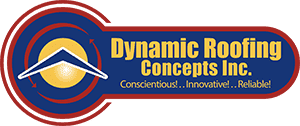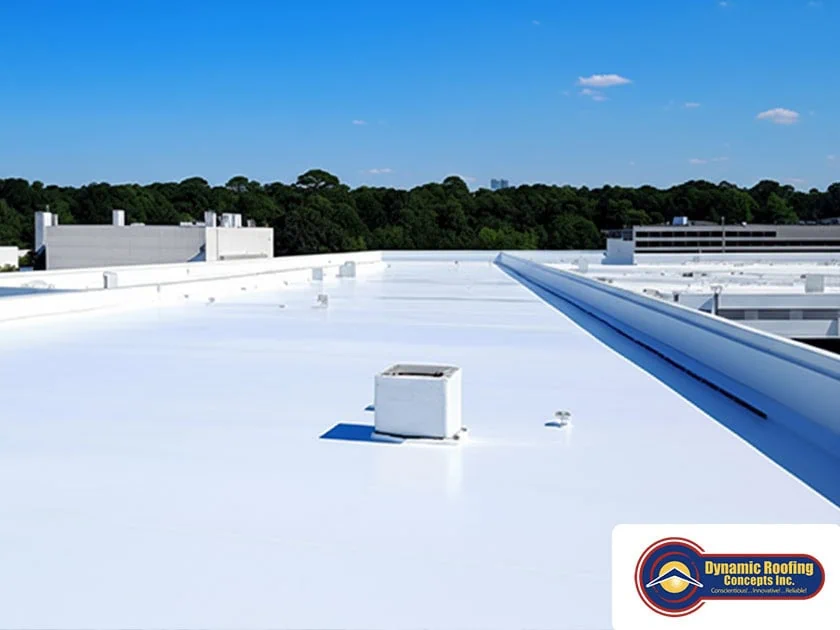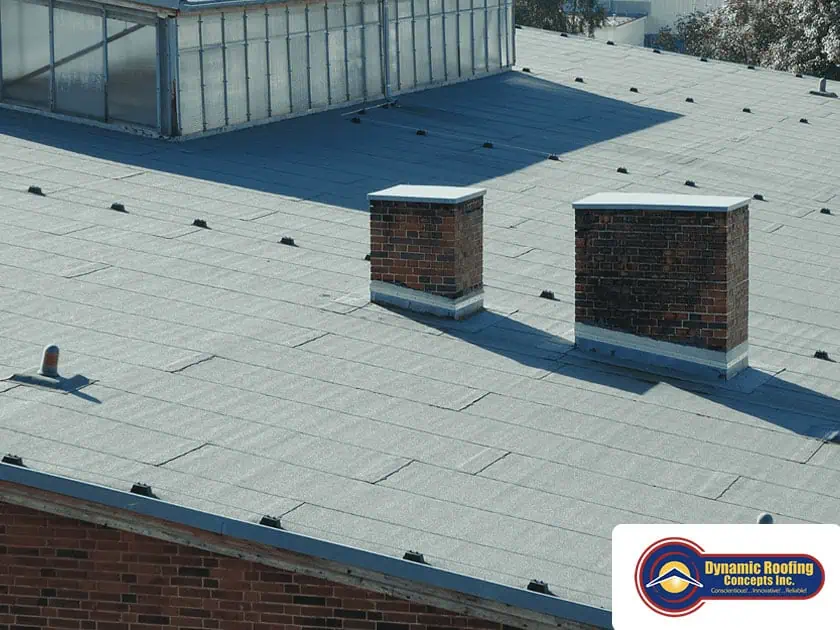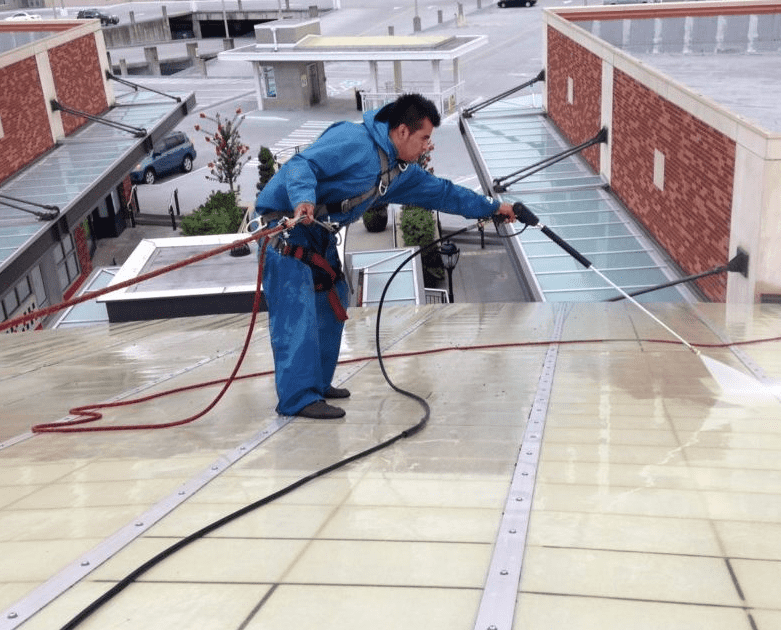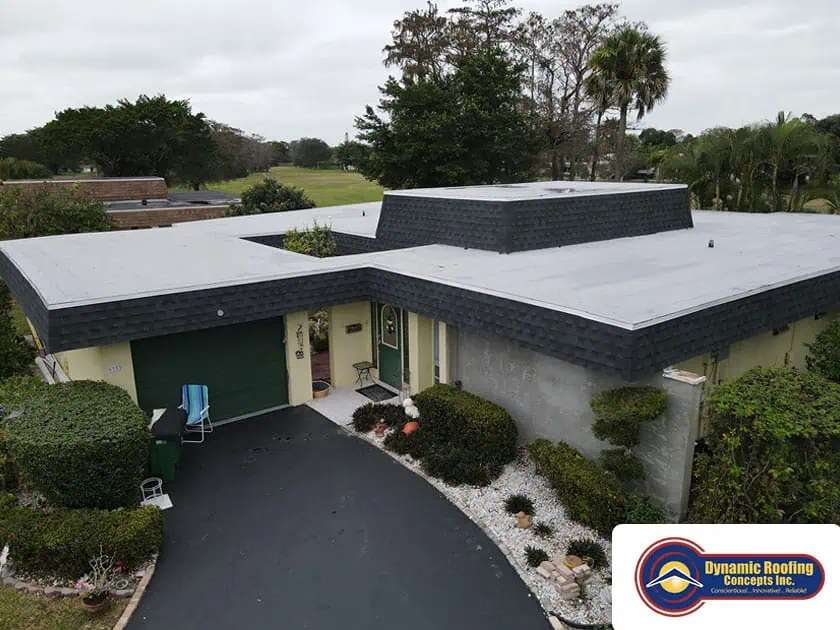

Share On:
When it comes to membrane roofing, EPDM, TPO, and PVC are the leading flat roofing systems for commercial properties in Brandon, FL. Each is suited to different needs—whether you're prioritizing affordability, energy savings, or chemical resistance.
- EPDM Roofing: A synthetic rubber membrane made from ethylene propylene diene monomer (EPDM rubber). It's flexible, affordable, and ideal for large, low-traffic flat roofs.
- TPO Roofing: A thermoplastic olefin membrane that reflects heat, reduces cooling costs, and resists punctures—perfect for Florida's warm climate.
- PVC Roofing: A polyvinyl chloride membrane built to withstand grease, oil, fire, and severe weather—ideal for industrial and restaurant settings.
Before diving into each material individually, here’s a quick side-by-side comparison to help you see how they stack up at a glance.
EPDM vs TPO vs PVC at a Glance
Here’s how EPDM, TPO, and PVC stack up in terms of material type, cost, energy efficiency, and ideal use cases for Brandon’s climate. Choosing the right roofing material for your Brandon, FL, commercial property can significantly impact your building’s long-term performance and budget. To make an informed decision, here’s a detailed side-by-side comparison to help you evaluate these roofing materials effectively:
| Feature | EPDM | TPO | PVC |
| Material Type | Synthetic rubber membrane | Thermoplastic polyolefin | Polyvinyl chloride (PVC) membrane |
| Lifespan | 20–30 years | 20–30 years | 20–30 years |
| Cost Range | Lower cost | Moderate cost | Higher upfront cost |
| Energy Efficiency | Black absorbs heat (white options available) | Reflective white surface (energy-saving) | Reflective surface (energy-saving) |
| Durability | UV- and weather-resistant, flexible | Tear- and puncture-resistant, welded seams | Chemical, fire, and wind resistant |
| Installation | Easy to install, fewer seams | Heat-welded seams, requires trained pros | Heat-welded or adhered, lightweight |
| Best For | Budget-conscious, low-traffic roofs | Energy efficiency, newer buildings | Chemical exposure, long-term durability |
Curious how these options stack up side-by-side? Let’s break down EPDM vs TPO roofing and TPO vs PVC roofing to help you choose the best flat roof for your Brandon commercial building.
| System | Pros | Cons |
| EPDM | Affordable, long-lasting, flexible, UV-resistant | Can shrink over time, standard black absorbs heat, puncture risk |
| TPO | Energy-efficient, welded seams, lightweight | Newer technology = variable quality, some early membrane cracking |
| PVC | Excellent chemical/fire resistance, durable, flexible | Higher cost, puncture-sensitive, can shrink without proper maintenance |
EPDM Roofing Overview
EPDM roofing is a flexible, cost-effective solution made from ethylene propylene diene monomer, commonly known as EPDM rubber. This synthetic rubber membrane is popular for low-slope commercial roofs because it can withstand UV exposure, weather extremes, and thermal expansion.
What Is EPDM Roofing?
EPDM is a single-ply membrane roofing material often compared to natural rubber. However, synthetic rubber is engineered for enhanced ultraviolet and weather resistance. Made from ethylene, propylene, and diene compounds, EPDM provides durable waterproofing and is widely used in commercial construction for its affordability, long life expectancy, and ability to handle temperature swings, ozone, and sunlight exposure.
Benefits of EPDM Roofing
- Cost-Effective: One of the most budget-friendly commercial flat roof options
- Durable in Harsh Conditions: Withstands weather, UV radiation, and ozone exposure
- Flexible and Resilient: Handles thermal expansion without cracking
- Low Maintenance: Minimal upkeep when installed correctly using appropriate adhesive and flashing
Drawbacks of EPDM Roofing
- Shrinkage: Over time, the membrane may contract, stressing seams
- Puncture Risk: Susceptible to damage from foot traffic or sharp debris
- Heat Retention: Standard black EPDM absorbs heat, increasing cooling costs unless a white coating is applied
Learn more about energy-efficient TPO flat roofing systems by contacting Dynamic Roofing Concepts Inc.
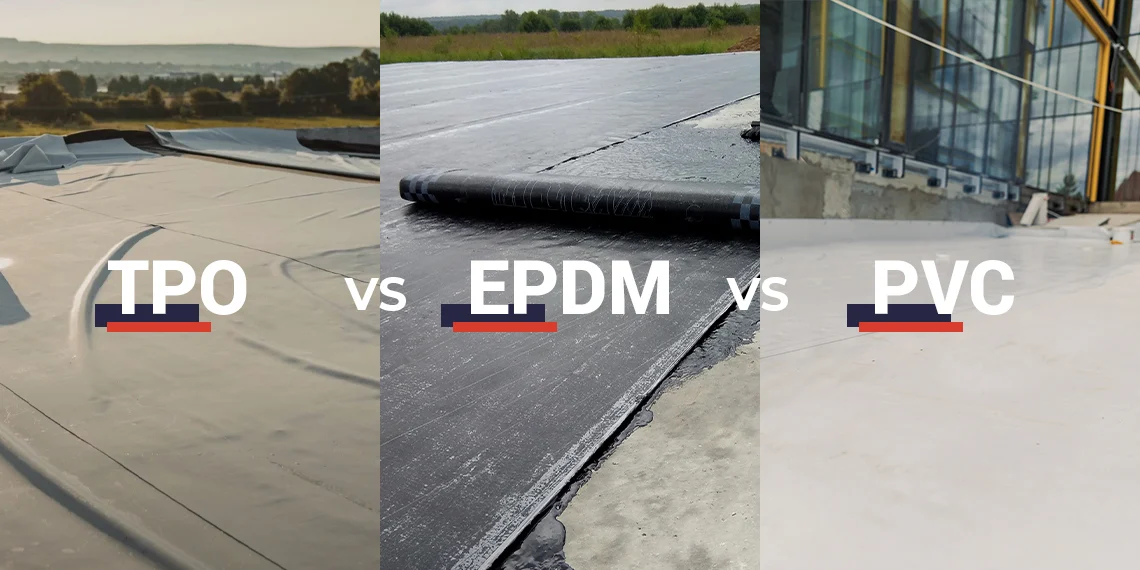
TPO Roofing Overview
TPO roofing (Thermoplastic Polyolefin) is a single-ply membrane system designed for energy efficiency and long-term performance. This thermoplastic material reflects heat, resists punctures, and handles Florida’s extreme weather exceptionally well.
What Is TPO Roofing?
Made from polypropylene and ethylene-propylene rubber, TPO is a thermoplastic olefin membrane that combines flexibility with chemical resistance. It's commonly used on flat commercial roofs due to its balance of performance and cost.
Benefits of TPO Roofing
- Energy-Efficient: Reflects ultraviolet radiation, reducing cooling costs
- Durable & Lightweight: Resists mold, tears, and punctures
- Heat-Welded Seams: Strong welding bonds prevent leaks and improve longevity
- Environmentally Friendly: Often made without plasticizers and eligible for recycling at end of life
Considerations Before Choosing TPO
- Inconsistent Quality: Early formulations and lower-tier manufacturing brands had issues with membrane cracking
- Installer Experience Matters: Proper seam welding and adhesive application are critical for long-term success
Curious about other flat roof options? Our team can help you compare TPO, Modified Bitumen, and PVC roofing systems. Reach out for expert guidance.
PVC Roofing Overview
PVC roofing (Polyvinyl Chloride) is a highly durable membrane roofing option ideal for commercial buildings exposed to grease, oil, or harsh chemical environments. Its reflective surface improves energy efficiency and resists fire, wind, and severe weather damage.
What Makes PVC a Strong Choice
PVC is a thermoplastic made from polyvinyl chloride, chlorine, and plasticizers. It’s a top choice for restaurants, warehouses, and manufacturing facilities where chemical exposure is common.
Benefits of PVC Roofing
- Chemical & Fire Resistant: Built to withstand pollutants, oils, chlorine, and flames
- High Reflectivity: Reduces heat absorption and improves building efficiency
- Flexible & Lightweight: Performs well under temperature shifts and rooftop stress
- Long Lifespan: Can exceed 30 years with proper maintenance and inspection
Potential Drawbacks of PVC Roofing
- Higher Upfront Cost: Among the more expensive membrane options
- Puncture Sensitivity: Can be damaged by sharp objects or improper installation techniques
- Limited Recycling: Not as easily recyclable as TPO, which may be a factor for businesses prioritizing sustainability and recycling programs
Check out our Commercial Roofing services for more options.
How to Choose a Commercial Roofing Contractor in Brandon
Choosing the right commercial roofing contractor in Brandon is critical to the success of your flat roof system. A well-installed roof offers better protection, longer life expectancy, and stronger warranty coverage.
Here’s what to look for:
- Florida licensing and insurance to ensure compliance and accountability
- Experience with membrane roofing systems like EPDM, TPO, and PVC
- Manufacturer certifications—such as GAF Master Elite® certification—for access to extended warranties
- Clear communication about project timelines, materials, and pricing
Ask for references, review recent projects, and confirm expertise in flat roofing specific to commercial buildings. The right contractor will explain your material options and help you make the best choice for your property and budget.
Whether you're managing a warehouse, retail space, or industrial facility, the right flat roofing system should balance cost, performance, and long-term durability for Brandon’s climate.
Ready to Start Your Commercial Roofing Project in Brandon?
With over 40 years of experience, Dynamic Roofing Concepts Inc. delivers expert commercial roofing built for Florida’s harshest weather. As a GAF Master Elite® Certified Contractor, we offer flat roofing systems backed by industry-leading warranties and energy-efficient performance.
Whether you're comparing EPDM, TPO, or PVC, our team will help you choose the right material for your budget and building—then install it with care.
📞 Call (813) 657-7663 or request a free estimate online today.
